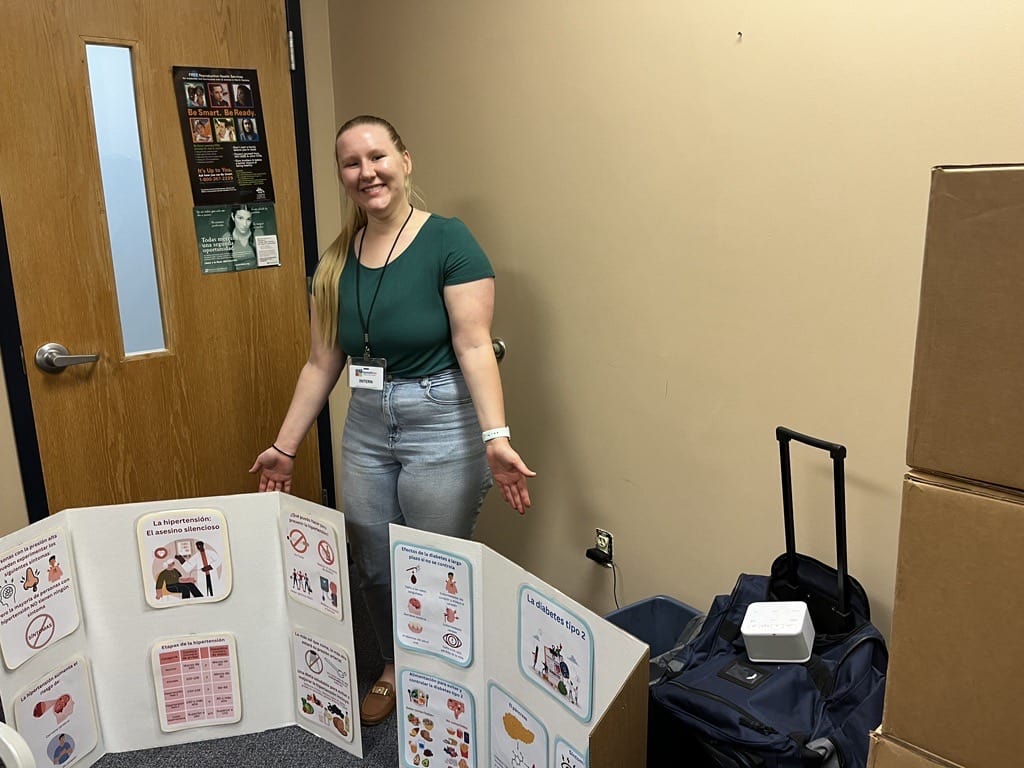
Throughout my internship this summer, I have learned so much about the barriers faced by farmworkers to access healthcare here in the U.S., such as lack of transportation, linguistic and cultural barriers, and fear of an unknown and complicated healthcare system, to name a few. This fear of engaging with a new system due to feelings of isolation and distrust was what stuck out most to me when working with farmworkers this summer. It is also this issue of trust for which I also have the most hope for the future, however. I have been truly blown away by the work of my supervisors at AppHealthCare and of other farmworker outreach programs to create meaningful relationships with farmworkers in our community and go above and beyond to build the trust with our patients necessary to create meaningful change in their lives.
For many of our patients, our services and outreach efforts are the first time that they have experienced people who truly want to help them in a society that has often ignored farmworkers and made them feel invisible. Many workers are also unaware of their rights to receive health services and fear backlash from their employers for missing work. I interacted with many workers for whom health came second to work, due to fear, mistrust, or a lack of knowledge of the healthcare system. Getting to know farmworkers and creating relationships with them allowed many to feel comfortable reaching out about their needs, trusting us in turn to take care of them.
I witnessed and participated in many conversations with farmworkers that had incredible impacts on how they perceived the importance of their health and their understanding of our program as a resource that they could trust. Simply reaching out to farmworkers at the gas station or in the grocery store and giving them information about our program with a friendly face went a long way in forging connections that made the workers in our community feel supported and seen. Outreach is a vital part of expanding healthcare access to farmworkers, but this requires lots of people and dedication.
Our program, while incredibly hardworking and committed to reaching as many farmworkers as possible, only consisted of three people. For the hundreds of workers in the area we serve, it can be difficult and even overwhelming to be the only link between most of our patients and their medical needs. In order to encourage the use of health services by farmworkers, more people must join the efforts to spread the word about available resources and build trust between the medical community and farmworkers. Growers must also recognize that the health of their workers benefits not only their workers but also themselves and encourage their workers to take advantage of programs like ours.
Building trust takes vulnerability and effort, but it is a necessary step toward making healthcare more accessible and welcoming to all. I hope to use my experience this summer as a medical provider one day to help farmworkers and other isolated communities feel comfortable accessing healthcare services despite fears or cultural and linguistic barriers.
